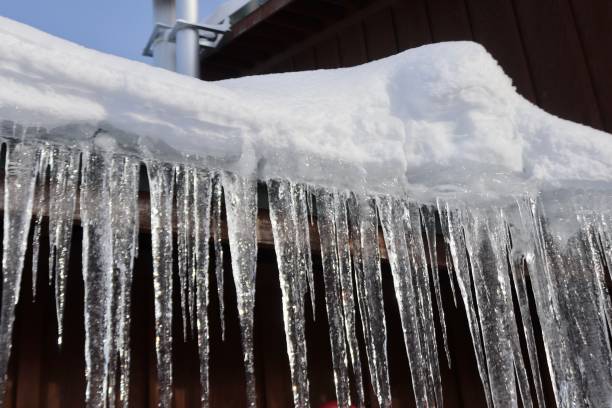Protecting Against Frozen Pipes in Cold Weather: Professional Advice
Protecting Against Frozen Pipes in Cold Weather: Professional Advice
Blog Article
We've encountered this great article involving Prevent Frozen Pipes below on the net and reckoned it made sense to discuss it with you over here.

Cold weather can wreak havoc on your plumbing, particularly by freezing pipelines. Here's exactly how to avoid it from happening and what to do if it does.
Introduction
As temperatures drop, the risk of frozen pipes increases, potentially causing expensive repair services and water damages. Comprehending exactly how to prevent frozen pipelines is critical for home owners in chilly climates.
Avoidance Tips
Insulating at risk pipelines
Wrap pipelines in insulation sleeves or utilize heat tape to shield them from freezing temperature levels. Focus on pipelines in unheated or external locations of the home.
Heating techniques
Maintain interior rooms properly warmed, particularly locations with pipes. Open closet doors to allow warm air to flow around pipes under sinks.
Just how to identify frozen pipes
Seek decreased water flow from taps, unusual odors or sounds from pipelines, and noticeable frost on exposed pipelines.
Long-Term Solutions
Architectural changes
Consider rerouting pipelines away from outside walls or unheated areas. Include added insulation to attics, cellars, and crawl spaces.
Upgrading insulation
Buy premium insulation for pipelines, attic rooms, and walls. Appropriate insulation assists keep regular temperature levels and decreases the risk of icy pipes.
Protecting Outdoor Pipes
Garden hose pipes and exterior faucets
Disconnect and drain yard pipes before winter months. Set up frost-proof faucets or cover outdoor faucets with insulated caps.
Recognizing Frozen Pipelines
What causes pipelines to ice up?
Pipes freeze when subjected to temperatures below 32 ° F (0 ° C) for extended durations. As water inside the pipelines freezes, it increases, taxing the pipeline wall surfaces and possibly triggering them to break.
Dangers and damages
Frozen pipelines can result in water system interruptions, home damages, and costly fixings. Burst pipelines can flood homes and trigger considerable structural damage.
Signs of Frozen Pipes
Recognizing icy pipes early can stop them from rupturing.
What to Do If Your Pipelines Freeze
Immediate actions to take
If you believe frozen pipes, maintain faucets open up to eliminate stress as the ice melts. Utilize a hairdryer or towels soaked in warm water to thaw pipelines gradually.
Conclusion
Protecting against icy pipes calls for proactive procedures and fast actions. By understanding the causes, signs, and preventive measures, house owners can shield their pipes throughout winter.
Helpful Tips to Prevent Frozen Pipes this Winter
UNDERSTANDING THE BASICS: WHY PIPES FREEZE AND WHY IT’S A PROBLEM
Water freezing inside pipes is common during the winter months, but understanding why pipes freeze, and the potential problems it can cause is crucial in preventing such incidents. This section will delve into the basics of why pipes freeze and the associated problems that may arise.
THE SCIENCE BEHIND FROZEN PIPES
When water reaches freezing temperatures, it undergoes a physical transformation and solidifies into ice. This expansion of water as it freezes is the primary reason pipes can burst. As the water inside the pipe freezes, it expands, creating immense pressure on the walls. If the pressure becomes too great, the pipe can crack or rupture, leading to leaks and water damage.
FACTORS THAT CONTRIBUTE TO PIPE FREEZING
Low Temperatures: Extremely cold weather, especially below freezing, increases the risk of pipes freezing. Uninsulated or Poorly Insulated Pipes: Pipes located in unheated areas, such as basements, crawl spaces, or attics, are more prone to freezing. Insufficient insulation or lack of insulation altogether exacerbates the problem. Exterior Wall Exposure: Pipes running along exterior walls are susceptible to freezing as they encounter colder temperatures outside. Lack of Heating or Temperature Regulation: Inadequate heating or inconsistent temperature control in your home can contribute to frozen pipes. PROBLEMS CAUSED BY FROZEN PIPES
- Pipe Bursting: As mentioned earlier, the expansion of water as it freezes can cause pipes to burst, resulting in significant water damage.
- Water Damage: When pipes burst, it can lead to flooding and water damage to your property, including walls, ceilings, flooring, and personal belongings.
- Structural Damage: Prolonged exposure to water from burst pipes can compromise the structural integrity of your home, leading to costly repairs.
- Mold and Mildew Growth: Excess moisture from water damage can create a favorable environment for mold and mildew growth, posing health risks to occupants.
- Disrupted Water Supply: Frozen pipes can also result in a complete or partial loss of water supply until the issue is resolved.
WHY CERTAIN PIPES ARE MORE PRONE TO FREEZING
- Location: Pipes located in unheated or poorly insulated areas, such as basements, crawl spaces, attics, or exterior walls, are at higher risk of freezing.
- Exterior Pipes: Outdoor pipes, such as those used for irrigation or exposed plumbing, are particularly vulnerable to freezing as they are directly exposed to the elements.
- Supply Lines: Pipes that carry water from the main water supply into your home, including the main water line, are critical to protect as freezing in these lines can affect your entire plumbing system.
- Underground Pipes: Pipes buried underground, such as those connected to sprinkler systems or outdoor faucets, can be susceptible to freezing if not properly insulated.
https://busybusy.com/blog/helpful-tips-to-prevent-frozen-pipes-this-winter/

We had been made aware of that editorial on Winter Plumbing Precautions: Preventing Frozen Pipes from a good friend on another domain. Appreciated our blog posting? Please share it. Let another person locate it. Kudos for your time. Revisit us soon.
Go Company Report this page